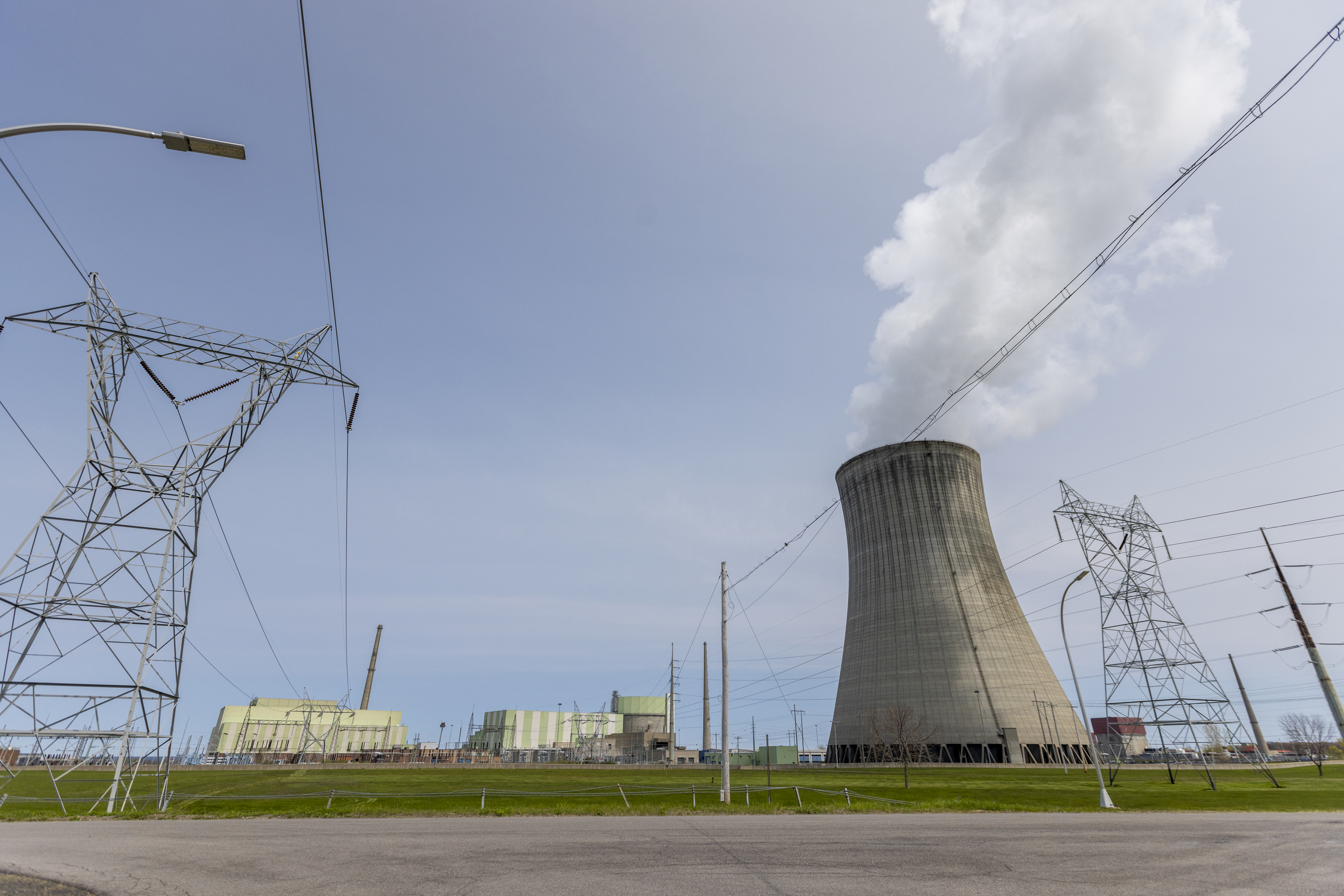Don Grace in Crain's NY Business - What Georgia's Plant Vogtle teaches us about New York’s nuclear ambitions
Op-ed: What Georgia's Plant Vogtle
teaches us about New York’s
nuclear ambitions
Lauren Petracca/Bloomberg
Just over a year ago, Georgia completed building two new reactors at Plant
Vogtle, making Georgia the first state to build new reactors in over 30 years.
Now that data centers are expanding to serve the needs of artificial
intelligence and electrification, there are calls for rapid construction of new
nuclear generation, specifically in New York State. But there’s a cautionary
tale to be learned for those seeking to build the next nuclear reactor.
New York’s Governor Kathy Hochul announced in June that she was directing
the New York Power Authority, the state’s public utility company, to construct
a new nuclear facility somewhere upstate with the power capacity of roughly
1000MW, similar to the amount of power produced by the NRC-approved
Westinghouse AP1000 reactor used at Plant Vogtle.
Now, Governor Hochul has requested the Trump administration fast track the
new plant, opening the door for New York to greenlight the first nuclear
reactor since Plant Vogtle, which was approved for construction in 2012.
Based on my intimate knowledge of Georgia’s Plant Vogtle project, I believe
political enthusiasm for nuclear power as a panacea to our energy needs is
misplaced. As a nuclear engineering professional with decades of experience
and the Vogtle Construction Monitor for the recently completed reactors, I
authored over a dozen reports on the progress and problems of Vogtle in
filings to the Georgia PSC and testimony before the commission.
In Georgia, energy generated by the new reactors cost $160/MWh, or five
times more than the $30/MWh price point at which most utilities can generate
electricity. Georgia’s residential ratepayers are now burdened with a 25% rate
increase for a modest amount of electricity generated by the new reactors for
Georgia Power’s share of the project.
It’s naïve to believe lessons learned from constructing Vogtle’s new reactors
will reduce costs for the next ones because the ‘first of a kind’ is always more
expensive. Yet Vogtle’s reactor design, the AP1000, is not the first of a kind –
it’s a basic pressurized water reactor, a technology from the 1950s where the
reactor's core is cooled by water circulated using electrically powered pumps.
There are some nuclear designs underway such as molten salt reactors or
small modular reactors which are new, but these designs will not carry any
reduced costs from lessons learned from Vogtle.
Even if the next reactor design is similar to Vogtle, the cost to construct the
AP1000 reactor was only one of many factors for cost overruns. A drop in
natural gas prices prompted the cancellation of 12 of the originally planned 14
AP1000 reactors, which then resulted in the abandonment of the modular
facility which was meant to supply common modules to the plants. Hampered
by the lack of experienced nuclear construction labor and an inability to
properly manage completion of the project, the construction contractor
ultimately declared bankruptcy.
However, even if natural gas prices hadn’t decreased, the $36 billion cost and
15-year timeline, even if improved 30%, means that nuclear generation is still
far more expensive and slower to deliver than any other solution. Georgia’s
new reactors support the case that nuclear energy is the only energy
technology that has never gotten cheaper over time.
Seventeen years after the Plant Vogtle expansion project first was licensed,
it’s clear that new nuclear is not a panacea. The staggering and ever-
increasing costs, prolonged construction timeline, and significant burden on
ratepayers reveal a technology that commercially speaking, remains
fundamentally flawed. And that’s not even touching on the safety and long-
term waste storage concerns raised by building new reactors.
The story of Plant Vogtle is not a tale of technological triumph, but a
cautionary narrative for states like New York seeking to build a new nuclear
reactor. If there are no limits to what is spent, anything can be completed.
Until the nuclear industry can demonstrate true cost-effectiveness and
technological innovation, it will remain a costly burden for ratepayers and a
distraction from the work that is needed to meet our future energy needs.
Don Grace served as the Plant Vogtle Construction Monitor from 2017 to 2024,
providing oversight and testifying semi-annually before the Georgia PSC.
- Log in to post comments




